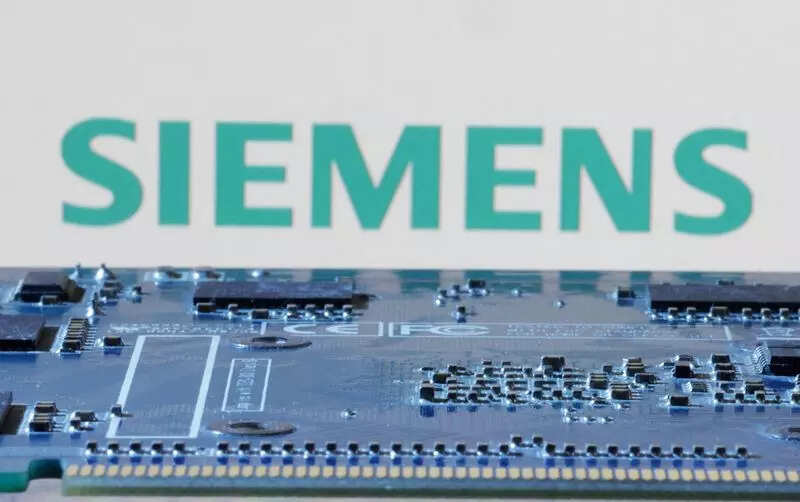- Industry
- 3 min read
India bridging infra gaps to be a global manufacturing hub: Siemens executives
Siemens executives affirm India's potential as a manufacturing powerhouse, with a focus on infrastructure development. Leveraging India's talent pool, Siemens aims to drive growth through AI innovation and strategic partnerships in semiconductor manufacturing.
“It (India) has always been important, but it's on the brink of being an absolute major player and we will do everything we can to support India's growth and success,” Cedrik Neike, member of managing board of Siemens AG and CEO, Digital Industries told ET.
He said India is one of the growth spots across all of Siemens’ businesses.
Sunil Mathur, managing director and chief executive officer, Siemens India said, “There are not too many countries in the world that are spending USD 1.2 trillion of capex, so you will get the entire world coming in wanting to participate in India's growth story.”
Mathur expects India to have about 60% public capex and 40% private capex in the new few years.
He said Siemens is looking to provide smart infrastructure to Indian firms at a time when new manufacturing units for smartphones, semiconductors, etc. are being built in the country.
Siemens is in talks with various entities such as Tata group for designing supply chains for semiconductor manufacturing, Mathur said, adding it can also partner other companies for designing semiconductor or battery factories as well as product and production process design.
Neike said a large part of Siemens’ software development is done in India, which has “extremely good” AI-centric developer talent. The Indian talent base is more than an ‘extended workbench’, he said, adding Siemens’ Pune software centre is the most integrated one globally.
India’s IT and operational technology capabilities and growing investments in manufacturing, a young and skilled workforce, and language advantage makes it easy for companies to move manufacturing to the country, he added.
Neike noted that globally, despite a tough economic scenario, an overall deceleration has not been observed. The need for greater efficiency and push for sustainability are also leading businesses to turn to artificial intelligence (AI), which is the “next big revolution”.
Siemens itself is leveraging AI for internal efficiency acceleration, simplification of products by building copilots, and creating value with the “huge treasure of data” it has on industrial and energy sectors, Neike said. He added that AI not only helps the company’s software developers in faster programming but also allows using data for more efficiency by helping to compare plans, optimise energy consumption, identify more sustainable designs, etc.
Neike said semiconductor manufacturing is seeing massive investments globally due to its importance in the AI revolution and geopolitical factors. The revolution in pharmaceuticals from generic to personalised medicine, and transition from internal combustion engines to electric vehicles in mobility are key focus areas for Siemens, he added.
Neike said the global macroeconomic environment currently is differentiated – while the discrete manufacturing segment may be subdued, India is still doing well on this front. Further, the energy sector is booming due to sustainability efforts and electrification needs, while mobility is poised for a long cycle trend.



COMMENTS
All Comments
By commenting, you agree to the Prohibited Content Policy
PostBy commenting, you agree to the Prohibited Content Policy
PostFind this Comment Offensive?
Choose your reason below and click on the submit button. This will alert our moderators to take actions